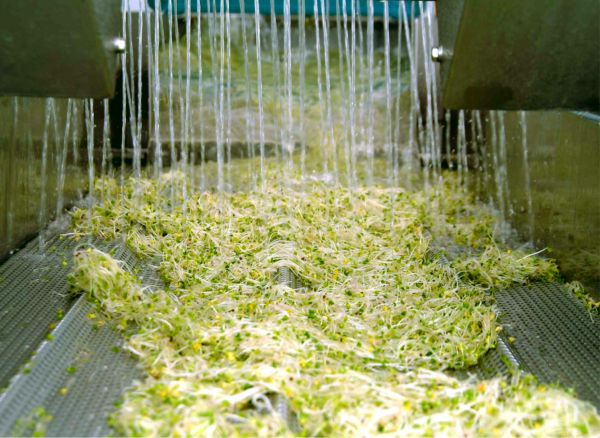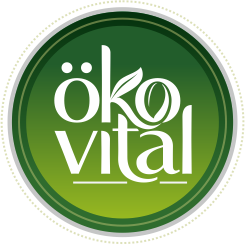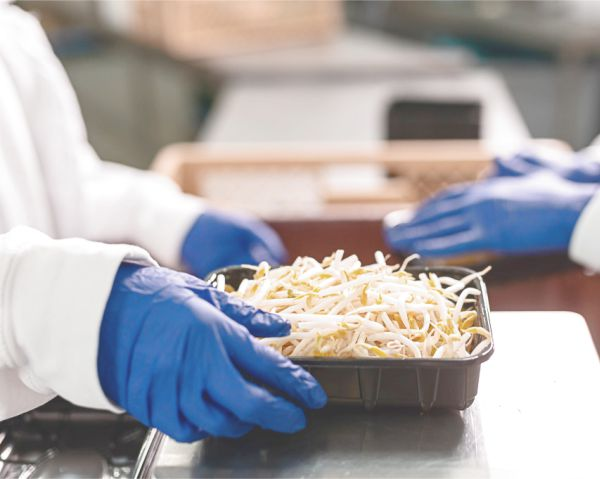We specialize in growing edible sprouts, shoots, and microgreens, offering the widest product range among domestic producers. Our 1300 m² facility is located in Sződ. We have established a modern machinery park, which we continuously develop to keep up with the growing demand. From the very beginning, we implemented a highly strict quality management system, and in addition to the HACCP system, we introduced the IFS Food standard elements in 2019, which allows us to continuously ensure the high quality of our products. We produce organic products and hold a certificate issued by Biokontroll Hungária Nonprofit Kft. Our monthly production exceeds 10 tons, making us the largest sprout producer in Hungary.
The cultivation of edible sprouts began in 2002 as a very small business. Due to their highly beneficial physiological effects, the products quickly gained popularity, and with the increasing focus on health consciousness, this trend continues to grow.
The business was dreamed up and established by a Hungarian duo, who are still the owners of the company today. The current facility was set up in 2016, where modern, specialized, automated equipment is now available for daily operations. Our products are consumed by a wide range of customers. Health-conscious buyers, consumers looking for organic products, and average households that pay attention to vegetable consumption and want to diversify their diet with fresh, ready-to-eat sprouts available year-round. As a result of many years of work, our products are nationally recognized and are sought after not only in the capital but also in major cities across the country.

Most sprouts are true superfoods because they contain Life itself. The tiny shoots that develop from the seeds contain all the nutrients necessary for the plant's growth. Therefore, they are exceptionally rich and diverse in vitamins, minerals, enzymes, amino acids, and other valuable substances. They have genuine health-promoting and cell-renewing effects, and their consumption can lead to significant results in recovery from various illnesses or even in tightening the skin tissues. They are fully digestible foods that provide instant energy to the body. Some sprouts, due to their high protein and essential amino acid content, are also popular among those following a meat-free lifestyle. Mung bean sprouts, which were once mainly found in Asian cuisine, are now increasingly purchased for use in salads and fresh consumption. The flavor of sprouts is highly diverse, often reflecting the taste of the fully grown plant. Some are neutral in flavor, while others are spicy or tangy, making mixed sprouts a true culinary delight.
The power of nature
The formation of sprouts is an important phase in the life cycle of plants. The entire process begins with the germination of seeds. When the right conditions, such as the proper temperature and water, become available, a tiny plant shoot, the sprout, emerges from the seed. The sprout breaks through the seed and starts developing its first leaves and roots.
The purpose of sprouts is to kickstart the plant's life and initiate the growth process. As the sprout grows and develops, it forms more leaves and roots, which help the plant continue to grow and survive. This process is crucial for plants, as it allows them to stay alive and create new plants, and it also plays an important role in human nutrition as edible sprouts.
Consuming edible sprouts as part of a healthy diet can be highly beneficial. The ideal amount depends on individual needs and nutritional goals, but it is generally recommended to consume 1-2 servings per day (approximately 1-2 tablespoons). Sprouts are rich sources of vitamins, minerals, and antioxidants, which strengthen the immune system and contribute to overall health.
Edible sprouts can be consumed at any time, but many prefer them for breakfast or lunch to provide energy throughout the day. These sprouts can be used in a variety of dishes and recipes, such as salads, sandwiches, soups, and smoothies. Edible sprouts can be especially useful if the goal is to create a diverse and healthy diet, as we can choose from various types and flavors, thus enriching our meals in a versatile way. However, it is important to note that the cultivation and storage of edible sprouts must be done in hygienic conditions to prevent the spread of pathogens and ensure they are safe for consumption.
Nowadays, the focus is on healthy eating, and we are hearing more and more about ready-to-eat, fresh organic sprouts. The beneficial physiological effects of sprouts help replenish our body's vitamin supply.
Today, we can find a really nice selection in the refrigerator sections of grocery stores, as not only the well-known wheat sprouts are available, but also a variety of other vegetable sprouts, such as pea, leek, broccoli, beetroot, different types of radishes, or mixed sprouts. With the exception of mung bean sprouts, all BIO CSIRI products are certified organic. Fresh, ready-to-eat sprouts are grown from seeds sourced from organic farming, produced in compliance with controlled food hygiene regulations, and are placed on our tables.







